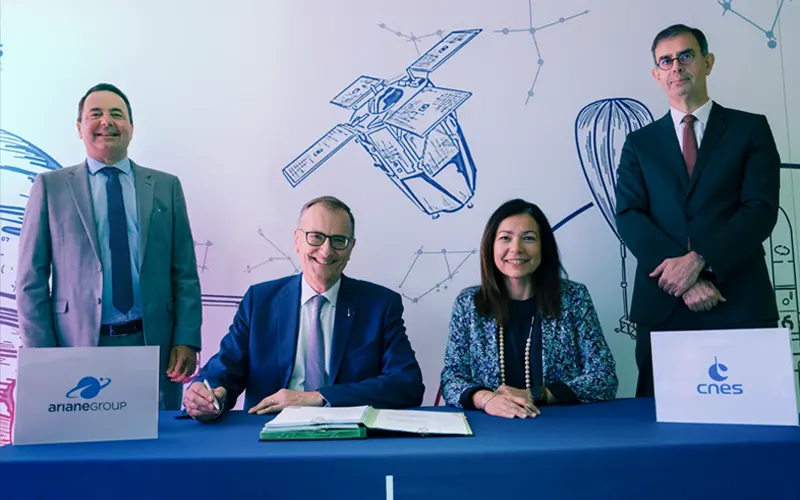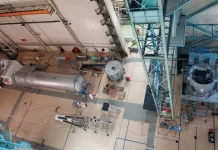
The French space agency CNES announced that it had selected ArianeGroup to lead a project to develop a high-thrust reusable rocket engine.
On 17 June, the agency announced the launch of its ASTRE (Advanced Staged-Combustion Technologies for Reusable Engines) project, revealing that industry stalwart ArianeGroup would lead a consortium that includes SiriusSpace and Pangea Aerospace. The project aims to develop a full-flow staged combustion methalox reusable rocket engine capable of producing between 200 and 300 tonnes of thrust, placing it in roughly the same class as the SpaceX Raptor engine. According to the agency, the goal of the project is “to equip the French and European space industry with new capabilities for strategic applications.”
As project lead, ArianeGroup will be responsible for technology maturation and the development of two demonstrator engines, one at reduced scale and another fully representative of the final engine. SiriusSpace will support the maturation of key technologies, while Pangea Aerospace will focus on the preliminary design of the target engine.
“Launch vehicles will be bigger, and their engines more powerful,” explains Valérie de Korver, VP of Liquid Propulsion Programs at ArianeGroup. “In anticipation of this need, ArianeGroup’s engineers are leveraging the company’s fantastic legacy in liquid propulsion technology to overcome today’s technical obstacles and develop the next-generation high-thrust engine for tomorrow’s heavy-lift launchers.”
According to an ArianeGroup press release, the company plans to employ a “test & learn” approach, which it says will allow for the evaluation of designs under real-life conditions and help shorten development cycle times. The company also explained that it would use the project to continue its efforts to “transition to smaller, more cost-effective engine architectures.”
While ASTRE is currently a CNES-led project, the timing of its introduction may suggest that the agency and its lead contractor, ArianeGroup, are positioning it for adoption by the European Space Agency at its Ministerial-Level Council Meeting later this year. The agency’s Prometheus reusable rocket engine initiative followed a similar trajectory. It was initially launched by CNES in 2015, with Airbus Safran Launchers (later renamed ArianeGroup) leading early development. In late 2016, Prometheus was officially adopted by ESA under its Future Launchers Preparatory Programme.




